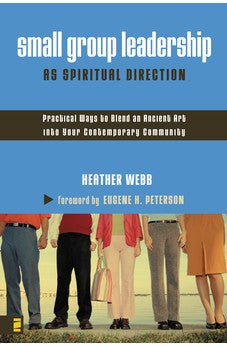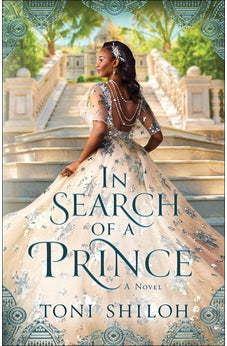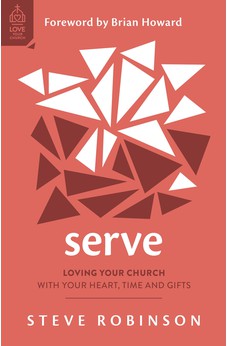The Ancient Mediterranean Social World: A Sourcebook
3 Great Reasons to Buy from Us:
What was the ancient world like? Ancient sources tell us a great deal about the cultural patterns and values that prevailed in the Mediterranean of the biblical periods:how they constructed identityhow they exercised control over groups, space, gender, and dresshow they thought of friendshiphow they participated in social and economic exchangehow ritual functioned and how kinship was constructedwhat healing practices, evil eye, and altered states of consciousness tell us about their scienceshow they talked about each other behind their backs, and whyThe Ancient Mediterranean Social World makes the rich social context of the ancient Mediterranean available to readers through succinct introduction of key ideas, thoughtful selection of translated primary sources, and extensive cataloging of relevant primary sources. Zeba Crook brings together leading scholars to write on twenty different topics, from patronage to gender to loyalty to evil eye. Each chapter opens with an introduction to the topic, offers a short list of secondary sources, and an extensive list of primary sources. The passages in each chapter reflect the vast array of sources roughly from Homer to Augustine, including epigraphical, papyrological, literary, historical, philosophical, biblical, and dramatic texts.This authoritative volume serves as a ready reference for the novice and experienced scholar alike.Contributors:Alicia J. Batten, Giovanni B. Bazzana, Agnes Choi, Zeba A. Crook, John W. Daniels Jr., Dennis C. Duling, John H. Elliott, Amy Marie Fisher, Mischa Hooker, Emil A. Kramer, Jason T. Lamoreaux, Dietmar Neufeld, Jerome H. Neyrey, SJ, Douglas E. Oakman, Ronald D. Roberts, Richard L. Rohrbaugh, Colleen Shantz, Gary Stansell, Eric C. Stewart, Erin K. Vearncombe, and Ritva H. Williams. Review ?This book is a triumphant demonstration of how major social-scientific models used in biblical interpretation have the closest of connections with ancient Mediterranean culture, of how the etic embraces the emic. Across a range of critical issues-such as economy, kinship, patronage, honor and shame, collectivism, gossip, space, gender, ritual, purity, and the evil eye-the contributors uncover a mother lode of primary evidence from Judean, Greek, and Latin texts, inscriptions, and papyri. It represents a unique and indispensable resource for understanding the ancient social contexts in relation to which we must interpret the biblical texts for their historical meaning.?- Philip F. Esler University of Gloucestershire ?If the past is a foreign country, then Crook?s sourcebook gives readers the tools to enter and experience that foreign culture. It primes them to articulate both traditional and newer social-scientific frameworks that can help guide their reading and interpretation of ancient texts. Drawing on a diverse range of sources, from Graeco-Roman philosophy and history to the Dead Sea Scrolls, from New Testament and early Christian texts to rabbinic literature, such a resource ensures that we understand as best we can the lived experience of the people represented in ancient texts and that we are not misled by our modern, often anachronistic assumptions, about society and culture.?- Sarah E. Rollens Rhodes College ?Social-scientific criticism of the New Testament entails the creation of models that are useful for explaining how people in the ancient Mediterranean understood and experienced their social world. This helpful sourcebook provides carefully chosen selections from the varied ancient texts that undergird the models applied in traditional and emergent areas of social-scientific criticism, from patronage and honor to space and secrecy. It is an indispensable resource for students and scholars of the social contexts of the New Testament.?- Anthony Keddie University of British Columbia ?A valuable provision for biblical study, presented in a way readily accessible to every student and scholar. Whatever your approach to the
What was the ancient world like? Ancient sources tell us a great deal about the cultural patterns and values that prevailed in the Mediterranean of the biblical periods:how they constructed identityhow they exercised control over groups, space, gender, and dresshow they thought of friendshiphow they participated in social and economic exchangehow ritual functioned and how kinship was constructedwhat healing practices, evil eye, and altered states of consciousness tell us about their scienceshow they talked about each other behind their backs, and whyThe Ancient Mediterranean Social World makes the rich social context of the ancient Mediterranean available to readers through succinct introduction of key ideas, thoughtful selection of translated primary sources, and extensive cataloging of relevant primary sources. Zeba Crook brings together leading scholars to write on twenty different topics, from patronage to gender to loyalty to evil eye. Each chapter opens with an introduction to the topic, offers a short list of secondary sources, and an extensive list of primary sources. The passages in each chapter reflect the vast array of sources roughly from Homer to Augustine, including epigraphical, papyrological, literary, historical, philosophical, biblical, and dramatic texts.This authoritative volume serves as a ready reference for the novice and experienced scholar alike.Contributors:Alicia J. Batten, Giovanni B. Bazzana, Agnes Choi, Zeba A. Crook, John W. Daniels Jr., Dennis C. Duling, John H. Elliott, Amy Marie Fisher, Mischa Hooker, Emil A. Kramer, Jason T. Lamoreaux, Dietmar Neufeld, Jerome H. Neyrey, SJ, Douglas E. Oakman, Ronald D. Roberts, Richard L. Rohrbaugh, Colleen Shantz, Gary Stansell, Eric C. Stewart, Erin K. Vearncombe, and Ritva H. Williams. Review ?This book is a triumphant demonstration of how major social-scientific models used in biblical interpretation have the closest of connections with ancient Mediterranean culture, of how the etic embraces the emic. Across a range of critical issues-such as economy, kinship, patronage, honor and shame, collectivism, gossip, space, gender, ritual, purity, and the evil eye-the contributors uncover a mother lode of primary evidence from Judean, Greek, and Latin texts, inscriptions, and papyri. It represents a unique and indispensable resource for understanding the ancient social contexts in relation to which we must interpret the biblical texts for their historical meaning.?- Philip F. Esler University of Gloucestershire ?If the past is a foreign country, then Crook?s sourcebook gives readers the tools to enter and experience that foreign culture. It primes them to articulate both traditional and newer social-scientific frameworks that can help guide their reading and interpretation of ancient texts. Drawing on a diverse range of sources, from Graeco-Roman philosophy and history to the Dead Sea Scrolls, from New Testament and early Christian texts to rabbinic literature, such a resource ensures that we understand as best we can the lived experience of the people represented in ancient texts and that we are not misled by our modern, often anachronistic assumptions, about society and culture.?- Sarah E. Rollens Rhodes College ?Social-scientific criticism of the New Testament entails the creation of models that are useful for explaining how people in the ancient Mediterranean understood and experienced their social world. This helpful sourcebook provides carefully chosen selections from the varied ancient texts that undergird the models applied in traditional and emergent areas of social-scientific criticism, from patronage and honor to space and secrecy. It is an indispensable resource for students and scholars of the social contexts of the New Testament.?- Anthony Keddie University of British Columbia ?A valuable provision for biblical study, presented in a way readily accessible to every student and scholar. Whatever your approach to the































